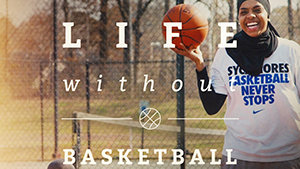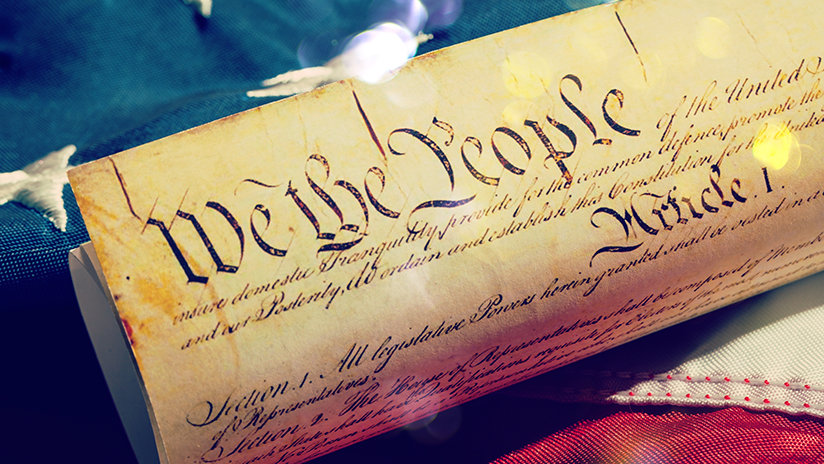
-
HOME
-
WHAT IS STANDOur Mission Our Values Our Help Contact
-
WHAT WE FIGHT FORReligious Freedom Religious Literacy Equality & Human Rights Inclusion & Respect Free Speech Responsible Journalism Corporate Accountability
-
RESOURCESExpert Studies Landmark Decisions White Papers FAQs David Miscavige Religious Freedom Resource Center Freedom of Religion & Human Rights Topic Index Priest-Penitent Privilege Islamophobia
-
HATE MONITORBiased Media Propagandists Hatemongers False Experts Hate Monitor Blog
-
NEWSROOMNews Media Watch Videos Blog
-
TAKE ACTIONCombat Hate & Discrimination Champion Freedom of Religion Demand Accountability
Shoulder to Shoulder Panel Shows Us Why People of All Faiths Must Confront Islamophobia
“Don’t you know what Sharia law REALLY is??!”
“Don’t you know that these people are into jihad?”
“Don’t you know what the Quran says?!”
I’ve seen the memes. I’ve spoken to nervous friends.
But why is there this nagging fear there may be a kernel or two of truth to the warnings and hysteria about Islam—a faith subscribed to by nearly one out of every four people on the planet?
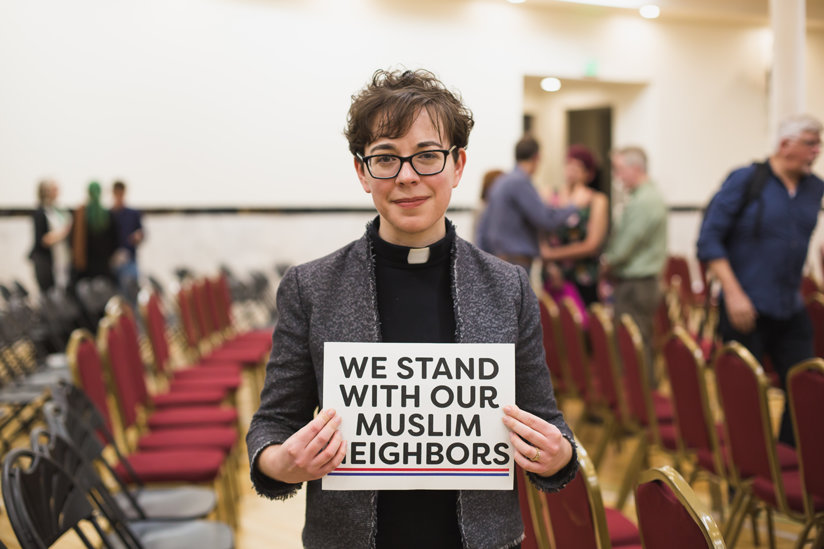
Why does Islamophobia—for that is what it is: an irrational fear and aversion to Islam and those who practice it—persist? This and other questions were navigated by a webinar panel last week organized by Shoulder to Shoulder, a national coalition-based campaign formed in 2010 to respond to the rise of anti-Muslim discrimination.
The webinar’s moderator, Nina M. Fernando, and panelists Rabbi Burton L. Visotzky and Jordan Denari Duffner have at least one thing in common: each is a member of a religion other than Islam. Each had a personal journey to make in confronting their preconceived notions about a religion not their own. And each had to face, as well, the ingrained prejudices of their own faith community toward a people wrongly scapegoated for generations.
“Our own self-identity has been worked out against Muslims. It makes Muslims ‘the other.’”
Nina Fernando set the theme for the webinar. As the head of Shoulder to Shoulder, Ms. Fernando explained that Islamophobia is not just a Muslim issue and that an attack on one faith is an attack on all. For the next hour the panelists, a Catholic and a Jew, proceeded to frankly and honestly chronicle their own navigations around the rocks and shoals of their—and their faith community’s—views about Islam in general and Muslims in particular. In doing so, they enlightened us on the rewards of befriending and understanding those we previously regarded as “the other.”
Jordan Denari Duffner, instructor, scholar and author of Finding Jesus Among Muslims: How Loving Islam Makes Me a Better Catholic and Islamophobia: What Christians Should Know (and Do) about Anti-Muslim Discrimination told of a time she was in Jordan, staying with a Muslim family, when she heard a man yelling outside in Arabic. She jumped to the conclusion the man was threatening violence and asked her hosts what was going on. The answer: he was selling vegetables from the back of his truck. The lesson learned was that—in spite of her training, in spite of her wish to love people of all faiths—she had yet fallen prey to a knee-jerk reaction based on popular myths and propaganda about Muslims.
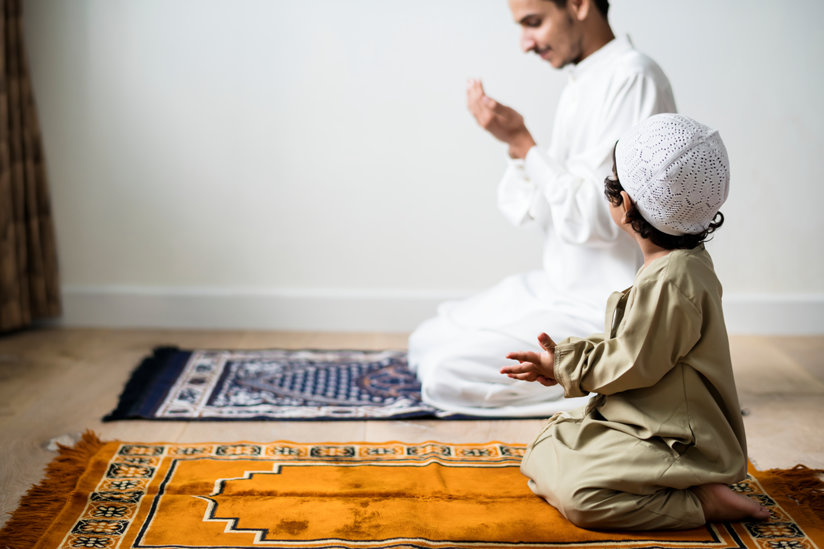
“I was in 5th grade when 9/11 happened and Muslims were always portrayed as the bogeyman,” she said. “There was always this negative image of Muslims in media.”
She added, “I and so many others are doing our best to handle people on stereotypes on Islam, and then you realize you’re still living with some of those stereotypes. We’re not bad people for having these thoughts. We all have the ability to change our hearts and minds.”
Rabbi Visotzky, author, lecturer and director of the Jewish Theological Seminary’s Milstein Center for Interreligious Dialogue, agreed. “We are human. We all have biases. Just as you must forgive others, you have to forgive yourself,” he said.
When asked why Islamophobia exists and persists, Ms. Duffner and Rabbi Visotzky replied from the context of their respective communities.
Ms. Duffner pointed to how Catholics have been educated to identify themselves not in terms of what they are, but what they are not. “Our own self-identity has been worked out against Muslims. It makes Jews ‘the other’ and Muslims ‘the other.’ Jews are this way and we are this way. We’ve been educated to identify ourselves in terms of otherism.”
“If someone’s going to hate on Muslims they’re also going to hate on Jews. We need to stick together.”
Rabbi Visotzky, for his part, said, “There’s a lot of dumping on the other: Jews, Muslims, LGBTQ. People want to one-up on the other. People compare their best with others’ worst.” He added: “There are parts of the Old Testament that I am mortified about. Instead of comparing our best with others’ worst, we should compare OUR best with THEIR best and learn from that.”
Duffner, for example, flat out forbids her non-Muslim students from using phrases like “Islam teaches___” or “the Quran says___.”
“You cannot say ‘the Quran says___’ because there’s a whole broad spectrum. Religions are interpretative traditions so we can’t say ‘the Quran says___’ and try to make a sweeping statement about the whole religion. There’s a wide array in Islam and the way that Muslims live their faith. We can’t broad-stroke a religion just as we don’t like people broad-stroking our own religion.”
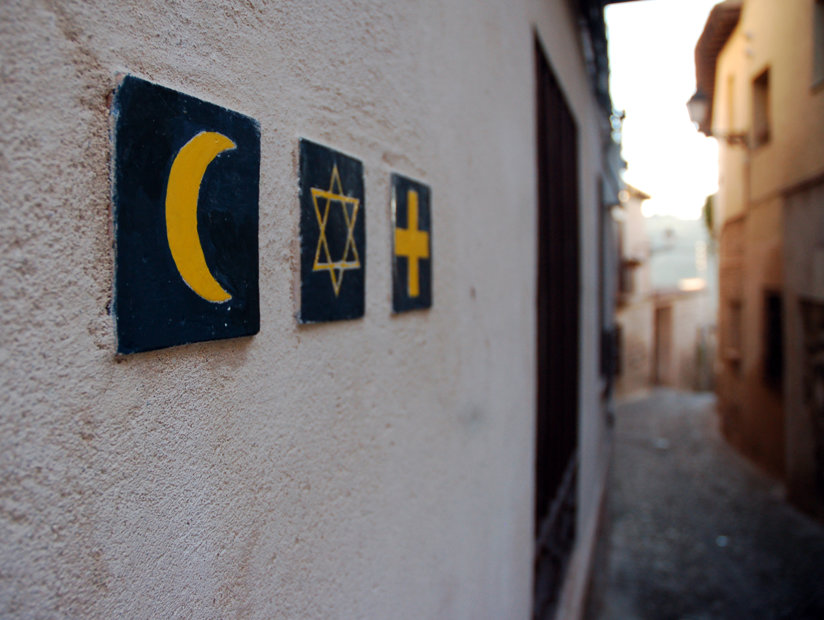
One’s faith may be said to be an extension of oneself. It is not just communal, it is personal as well—sometimes intensely so. And just as one shouldn’t broad-stroke a person—thinking one knows him or her from a single fact—one shouldn’t broad-stroke that person’s faith and imagine he knows everything there is to know. Down that path lie labels, misunderstanding and ultimately prejudice.
Why should standing against prejudice towards another’s faith be just as important as fighting prejudice directed at one’s own faith?
Rabbi Visotzky’s answer was simple. “Because it’s the right thing to do. We stand up for our neighbor. There is reciprocal ally-ship. If someone’s going to hate on Muslims they’re also going to hate on Jews. We need to stick together. The more we stick together, the greater this union we call America is.”
Ms. Duffner’s answer was simple, too. While pointing out how so many Christians are buying into the false media and politics-fueled misconceptions of Islam, the Christian values of love, hospitality and welcoming the stranger get swept aside. “Islamophobia harms us, too, my Christian community,” she said. “If we’re not living up to the values we say are important to us, it harms our relationship with God.”
Both Rabbi Visotzky and Ms. Duffner urge hands-on dialogue and interaction with Muslims. Rabbi Visotzky advised beginning with three steps from Jewish tradition: “(1) Learn to listen to other people. If you can listen and hear them you’re halfway there. Who knows? You may learn something. (2) Judge everyone favorably. Give them the benefit of the doubt. Don’t assume they’re evil. (3) Love your neighbor as yourself. ”
Ms. Duffner advised that Christians bear in mind their own values. “There are things like protecting human life and dignity, of solidarity,” she said. “Anti-Muslim discrimination is not what God wants from us.”






